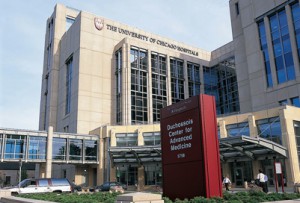 Walking into our Med-Peds clinic is like coming home. This is the place where we enjoy seeing patients across the spectrum of age, moving from newborns to elderly patients, teenagers, school-age children, and adults all in the same day. What makes our clinic feel like home is much more than the physical space—the shelves lined with Reach Out and Read books given to each pediatric patient after the visit, the colorful “pap rally” poster encouraging us to increase cervical cancer screening, the walls cluttered with patient resources on topics of food insecurity, legal services, safe housing, addiction medicine, and trauma-informed care—our clinic is a home because of the people.
Walking into our Med-Peds clinic is like coming home. This is the place where we enjoy seeing patients across the spectrum of age, moving from newborns to elderly patients, teenagers, school-age children, and adults all in the same day. What makes our clinic feel like home is much more than the physical space—the shelves lined with Reach Out and Read books given to each pediatric patient after the visit, the colorful “pap rally” poster encouraging us to increase cervical cancer screening, the walls cluttered with patient resources on topics of food insecurity, legal services, safe housing, addiction medicine, and trauma-informed care—our clinic is a home because of the people.
We have an incredible nurse, Mirthala, who goes above and beyond to follow up with our patients and make sure they are heard, Monica, our outstanding Medical Assistant who can calm even the most cantankerous toddler needing vaccines, and Deidre, our fabulous LPN who works tirelessly to make sure nothing slips through the cracks. Our knowledgeable Med-Peds faculty precept in clinic each week, offering residents the opportunity to learn from a variety of providers with unique areas of expertise, including healthcare bioinformatics (Sachin Shah), substance use disorder and Suboxone prescribing (George Weyer), clinical research and quality improvement (Valerie Press), sickle cell anemia (Nabil Abou Baker), women’s health and evidence based medicine (Anna Volerman-Beaser), and adult disability (honorary med peds, Kamala Cotts).
The most special aspect of our clinic is the incredible patient population we have the honor of serving. Our patients hail from neighborhoods on the South Side of Chicago including Woodlawn, Englewood, Chatham, Hyde Park, and South Deering. About one-third of our patients are on Medicaid and one-third on Medicare. Our patients are 55% female and 45% male. About 70% of our patients are African American, 22% white, 5% Asian, and 5% unknown or undisclosed. Our patients range in age from newborn to greater than 100 yrs, about a quarter being younger than 18 yrs, a quarter are adolescents and young adults, and about an eighth of our patients are greater than the age of 75.
Residents maintain continuity with patients throughout the 4 years of residency with half-day clinics scheduled on average once a week. During ambulatory blocks, residents fully immerse in primary care with daily clinic and opportunities to learn in the adult disability clinic, women’s health clinic, adolescent health, and anticoagulation clinic, among other unique experiences in primary care. Having our Med-Peds clinic serve as a home-base provides residents with the skills and knowledge necessary to become leaders in primary care and navigate the complexities of caring for underserved patients.
